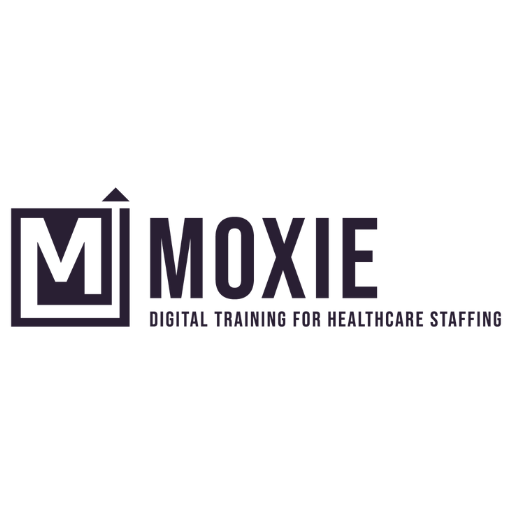By: Adam Gomez
The ability of agency recruiters and account managers to work in harmony is tantamount to success in the travel healthcare staffing industry. In fact, staffing in any sector demands it, given the necessity of both jobs and talent. After all, having one without the other won’t lead to revenue for your business!
Yet, we often hear from members of each of these groups that their counterparts aren’t as invested as they are. Or that they don’t work as hard as they should for the desired outcome.
Accomplishing harmony between recruiters and account managers has arguably become more difficult in today’s market. As VMS and MSP programs have evolved, so has the role of the account manager. Today, account managers invest a substantial amount of their workdays uploading candidate profiles and documentation into VMS software programs. And, they spend considerably less time seeking out new business than their predecessors circa 2007. In their defense, business was easier to find circa 2007 than it is today. Wouldn’t it be fantastic if someone would put together a list of all the “free-agent”, or non-VMS/MSP linked hospitals out there?
Another key change to the account manager role has been a marked reduction in their ability to obtain and communicate feedback to their recruitment team. Today’s account managers are typically tied to working with a handful of VMS or MSP partners and their designated account managers. And unfortunately, these vendor account managers, while committed to staffing their clients (the hospitals), are arguably not as committed to the success of the individual agency. Certainly not to the degree the agency’s account manager is. That’s not to say they’re not doing their jobs, but rather to say that “doing their jobs” does not require that a particular agency is successful.
These changes and many more have impacted the role of today’s travel healthcare recruiter. In 2018, we find recruiters often tasked with keeping their candidates engaged during a sometimes brutal submittal-placement process mired by hopelessness stemming from a considerable lack of feedback from vendors following submittal. Sure, recruiters can educate their candidates, and they should do so, and they should also continue to search for other options. But at the end of the day, their candidates often justifiably grow weary in the absence of any glimmer of hope. After all, it seems reasonable one might expect to hear “something” after applying for a position, right? Not in this industry, not right now at least.
Recruiters are also often given fewer job details. Often, they know only the specialty and shift and that’s about it. They forego asking for additional information because the job will be filled before you get it. I recognize that I’m sounding a bit negative, but this is the reality. This is the market we’re competing in today.
With so many important details unavailable prior to submittal, it is difficult today for recruiters to effectively match candidates to positions. And this is not to say a detailed job description has ever been easy to get, but this has worsened over the course of the past 5 years.
All of these changes have widened the chasm between account managers and recruiters. Rest assured, there have always been challenges. But today’s account managers are clearly disadvantaged due to the lack of control and influence they can wield during the submittal-placement process. And, although they can impact each of these areas through building strong relationships with their vendors, the reality is, by and large, the control and influence they maintain is not the same as it once was. Understandably, they and their recruiter counterparts are frustrated. This frustration often leads to misunderstanding and possibly even resentment. And in some instances, the situation can become so overwhelming that it spreads like a cancer throughout the recruitment and account management teams. And before you know it, you’ve got a serious problem – one that will cost your company only revenue, if you’re lucky, but which may also cost you talent, which is terribly hard to find right now.
But all is not lost. The first step you can take towards addressing this matter is to cross-train members of each department. The simple truth is this: When we don’t understand something, it’s natural to make assumptions. For recruiters, it’s easy to assume your account managers are not “doing their jobs” when they fail to obtain feedback after submitting a strong candidate for an urgent need. And account managers may wrongly assume a recruiter is failing to do their job and “close” candidates when a candidate declines an offer because the position is not the right fit.
So let’s take a look at some options for cross-training your account managers and recruiters. The first option is to simply set aside blocks during the workday for job-shadowing. Recruiters and account managers in this arrangement would have the opportunity to see first-hand how a typical day looks for their colleagues.
Here’s a sample of a straightforward shadowing plan for recruiters gaining a better understanding of the account manager role:
Session 1: Review of VMS and MSP Partnerships and Requirements
Session 2: Candidate Profile Review, Vendor Portal Review, Submission Process
Session 3: Job Posting Maintenance and Business Development
When creating a job-shadowing program, here are the most important steps to consider:
- Who is qualified to lead each session?
- Create a consistent schedule that is followed by your leader every time.
- What resources do the individual(s) leading the session require?
- What time of day works best?
- Do you want the person shadowing to engage in any tasks?
- How will mastery of the content be measured?
- Allow time for questions
It’s always helpful to have an outline to keep each session focused on a specific series of tasks.
Another step that can be taken is to place an emphasis on candidate and candidate profile quality. This can be accomplished through focused training and profile audits. A suggestion would be to conduct quarterly training sessions in which information gained through random candidate profile audits can be presented. Often, these audits can be extremely revealing. Working with several different firms in training sessions dedicated to profile building has certainly opened our eyes to some serious quality concerns when it comes to candidate profiles out there! Furthermore, the discussions that occur during these training sessions will help your team identify some key areas of opportunity for improving the overall quality of these all-important packets.
A final recommendation is to work with your account management team so they are comfortable sending candidate profiles that may not line up 100% with the requirements of a particular job posting. Often, candidates who meet many but not all of the requirements of a position are able to secure positions because the account manager is able to effectively market a candidate. I’m reminded of a conversation I had long ago with one of the best account managers I’ve had the pleasure of working with. He told me, “It’s not my job to close doors, it’s my job to open them.” And that is the role of the Account Manager in these situations.
There’s an old saying, “Never judge a man until you’ve walked a mile in his shoes”. By cross-training your teams, each member is allowed to learn the nuances of each position. They can see first-hand some of the challenges faced by their colleagues. And rather than making assumptions, they have the knowledge necessary to engage in positive dialogue. And in doing so, diminish the “us” versus “them” mentality which can be damaging to any organization.
This straightforward approach will promote harmony among your account managers and recruiters. And ultimately unify two core components of your company.





